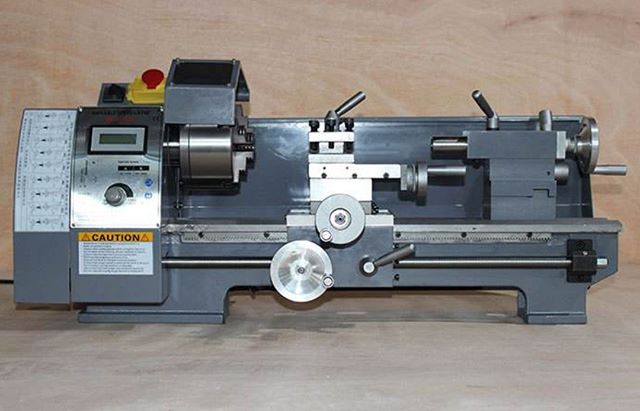What are the Parts of a Lathe Machine - Lathe Parts and Functions | Dajin Precision
Lathe machine is versatile in metalworking and usually used to cut the cylindrical workpiece, for producing specific CNC lathe parts, what are the parts of a lathe machine and their functions? The basic mechanism and functional tools combined to perform various operations.
What is a Lathe?
Lathe is a kind of machine which mainly uses turning tools to cut the rotating workpiece and remove excess materials. The lathe can also be used for the drilling, reaming, tapping, knurling, grooving, facing, threading and more processes. CNC lathe refers to the equipment controlled by computerized devices and information. Lathes can be classified into Engine lathe, Turret lathe, Speed lathe, Tool room lathe, etc.
What are the Parts of a Lathe Machine? - Main Lathe Parts and Functions
A series of parts formed a lathe and realize various functions, to remove material and gain desired shape and sizes. How many parts are there in a lathe machine? Different types of lathes may have different parts and varying specifications, targeting various production and application needs. Here we introduce the basic and essential parts and their functions of a general turning lathe.
1. Power On/Off
Turn on or turn off the lathe machine
2. Bed
The main part of the machine, often made of cast iron, used to support and install other parts of the lathe, such as headstock, tailstock and carriage rail, and ensure their relative position, has high rigidity and strength, there are four parallel guide rails used for the correct movement of the carriage (tool rest) and tailstock relative to the headstock.
3. Headstock
Mounted in a fixed position on the inner ways, to support and rotate the spindle. The spindle is a hollow structure, installed with three-jaw chuck and other accessories to hold the workpiece.
4. Spindle
The lathe spindle is used to hold and rotate the chuck, hole through the headstock to which bar stock can be fed.
5. Gearbox
Inside the headstock, the motor drives the gear shaft in the gearbox to rotate, providing multiple speeds through changing the gear matching (meshing) position in the gearbox, and then the movement is transmitted to the spindle through the pulley.
6. Chuck
Bolted on the spindle and used to hold the workpiece or bar stock, there are different types, like 3-jaw (self-centering) or 4-jaw (independent), and chucks for clamping noncylindrical parts.
7. Tailstock
It can be located on the right side or inner position of the lathe, used for centering the piece when a long part is tied on the chuck. It provides good support to damp the vibration.
8. Carriage
Moves in the outer ways, used to mount most the turning cutting tools and make them move vertically, horizontally or obliquely.
9. Tool Post
It’s bolted on the carriage, to hold the cutters at the correct position with the tool holder.
10. Apron
It’s attached to the front of the carriage, equipped with the mechanism for controlling and moving the carriage and cross slide.
11. Feed Rod
A power transmission mechanism with a keyway, the reversing pinion gears on it can be meshed with the mating bevel gear to move the carriage.
12. Lead Screw
Serves for the feed rod, used to move the carriage automatically during thread cutting.
13. Hand Wheel
The wheel operated by hand to move the cross slide, carriage, tailstock and other parts that have handwheel.
14. Cross slide
Mounted on the carriage, and uses the handwheel to feed cutting tools into the workpiece.
15. Speed controller
Located on headstock and controls the spindle speed.
16. Guideways or guide rails
To ensure the accurate movement of tailstock and carriage on bed, comes in outer or inner ways.
17. Chip Pan
At the bottom or lower part of the lathe machine, to collect the chips created during turning machining.
18. Compound Rest
It is mounted to the cross slide, pivots around the tool post.
There are also other parts mounted on some turning lathe for certain requirements, like cooling devices and follow rest.

